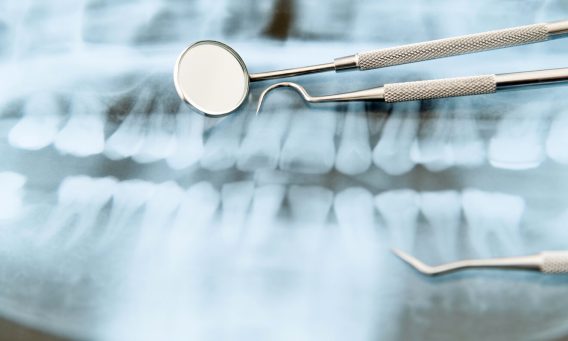Ohio Man Files Suboxone Dental Injury Lawsuit
Editors carefully fact-check all Drugwatch.com content for accuracy and quality.
Drugwatch.com has a stringent fact-checking process. It starts with our strict sourcing guidelines.
We only gather information from credible sources. This includes peer-reviewed medical journals, reputable media outlets, government reports, court records and interviews with qualified experts.

An Ohio man who was prescribed Suboxone for opioid use disorder is suing several companies, claiming he suffered severe dental injuries after using the prescription drug.
Keith King filed a product liability lawsuit against Suboxone maker Indivior Inc. as well as related companies Indivior PLC, Indivior Solutions Inc., Aquestive Therapeutics Inc., MonoSol Rx Inc., Reckitt Benckiser LLC and Reckitt Benckiser Healthcare (UK) Ltd. All of the defendants designed, manufactured, sold and/or distributed Suboxone.
King was prescribed Suboxone after he became addicted to an opioid prescription used for pain management, according to the lawsuit. He claims that after 16 months on Suboxone he suffered severe tooth decay and eventually had to have several teeth extracted.
The drug, which is given in tablet or film form, is dissolved in the mouth several times a day. The lawsuit claims the companies should have known that Suboxone, which has an acidic pH of 3.4, could have caused dental injuries and failed to warn users and the doctors who prescribed it.
Suboxone’s Role in Treating Opioid Addiction
In 2002, the U.S. Food and Drug Administration approved Suboxone to treat opioid use disorder as an oral tablet that dissolved in the mouth. In 2015 it was approved as a film that could be dissolved inside the cheek. By then the U.S. was facing an opioid crisis.
Millions of Americans were abusing prescription medicines that were being issued by doctors at alarming rates. In 2017, the U.S. Department of Health and Human Services declared an opioid crisis, reconfirming it again in 2023.
Suboxone has two main ingredients that work together to help opioid users:
- Buprenorphine, which is acidic, can be used to reduce withdrawal symptoms and cravings.
- Naloxone can quickly reverse the effects of an opioid overdose and can block the effects of the opioid.
While Suboxone has been used to try to alleviate the opioid crisis, King’s recent lawsuit shines a light on another aspect of the emergency: dental injuries. After two decades on the market, the FDA released a public warning that Suboxone, when delivered orally, can cause dental problems.
“The dental problems, including tooth decay, cavities, oral infections, and loss of teeth, can be serious and have been reported even in patients with no history of dental issues,” according to the FDA. “Despite these risks, buprenorphine is an important treatment option for opioid use disorder (OUD) and pain, and the benefits of these medicines clearly outweigh the risks.”
In June 2022 the FDA required a dental warning label be added to Suboxone and to medical pamphlets, warning users of the risks.
Suboxone Dental Injury Lawsuits
Many people are now filing Suboxone dental injury lawsuits after suffering problems, claiming the manufacturers did not adequately warn about the potential dental side effects.
People who were prescribed dissolvable Suboxone tablets or films for pain management or opioid addiction for at least six months and suffered dental problems could be eligible to file a lawsuit. Dental injuries include:
- Cavities
- Gum Injuries
- Tongue Injuries
- Tooth Decay
- Tooth Fractures
- Tooth Loss
Users must have seen a dentist at some point before starting Suboxone to qualify. This type of lawsuit is in the early stages.


